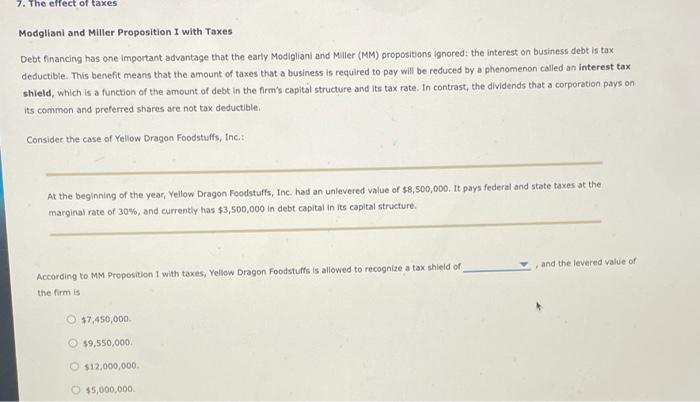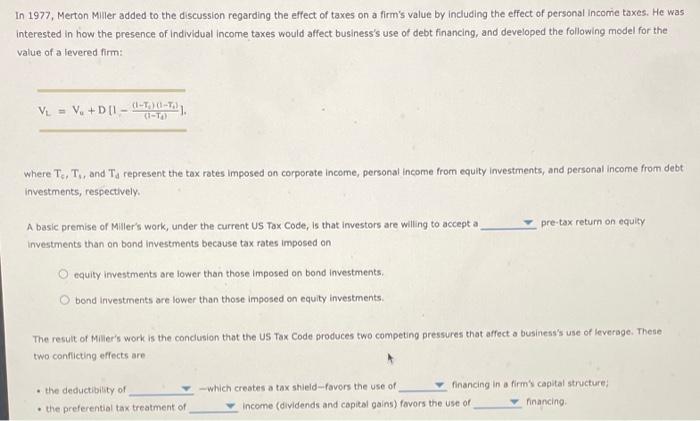7. The effect of taxes Modgliani and Miller Proposition I with Taxes Debt financing has one important advantage that the early Modigliani and Miller (MM) propositions ignored the interest on business debt is tax deductible. This benefit means that the amount of taxes that a business is required to pay will be reduced by a phenomenon called an interest tax shield, which is a function of the amount of debt in the firm's capital structure and its tax rate. In contrast, the dividends that a corporation pays on its common and preferred shares are not tax deductible Consider the case of Yellow Dragon Foodstuffs, Inc.: At the beginning of the year, Yellow Dragon Foodstuffs, Inc. had an unlevered value of $8,500,000. It pays federal and state taxes at the marginal rate of 30%, and currently has $3,500,000 in debt capital in its capital structure and the levered value of According to MM Proposition I with taxes, Yellow Dragon Foodstuffs is allowed to recognize a tax shield of the firm is $7,450,000 59,550,000 $12,000,000 $5,000,000 In 1977, Merton Miller added to the discussion regarding the effect of taxes on a firm's value by including the effect of personal Income taxes. He was interested in how the presence of individual income taxes would affect business's use of debt financing, and developed the following model for the value of a fevered firm: V = V. +D1- () (1-1) where T., T., and Ta represent the tax rates imposed on corporate income, personal income from equity Investments, and personal income from debt Investments, respectively pre-tax return on equity A basic premise of Miller's work, under the current US Tax Code, is that investors are willing to accepta Investments than on bond investments because tax rates imposed on equity investments are lower than those imposed on bond Investments bond investments are lower than those imposed on equity investments The result of Miller's work is the conclusion that the US Tax Code produces two competing pressures that affect a business's use of leverage. There two conflicting effects are the deductibility of the preferential tax treatment of - which creates a tax shield-favors the use of financing in a firm's capital structure Income (dividends and capital gains) favors the use of financing








